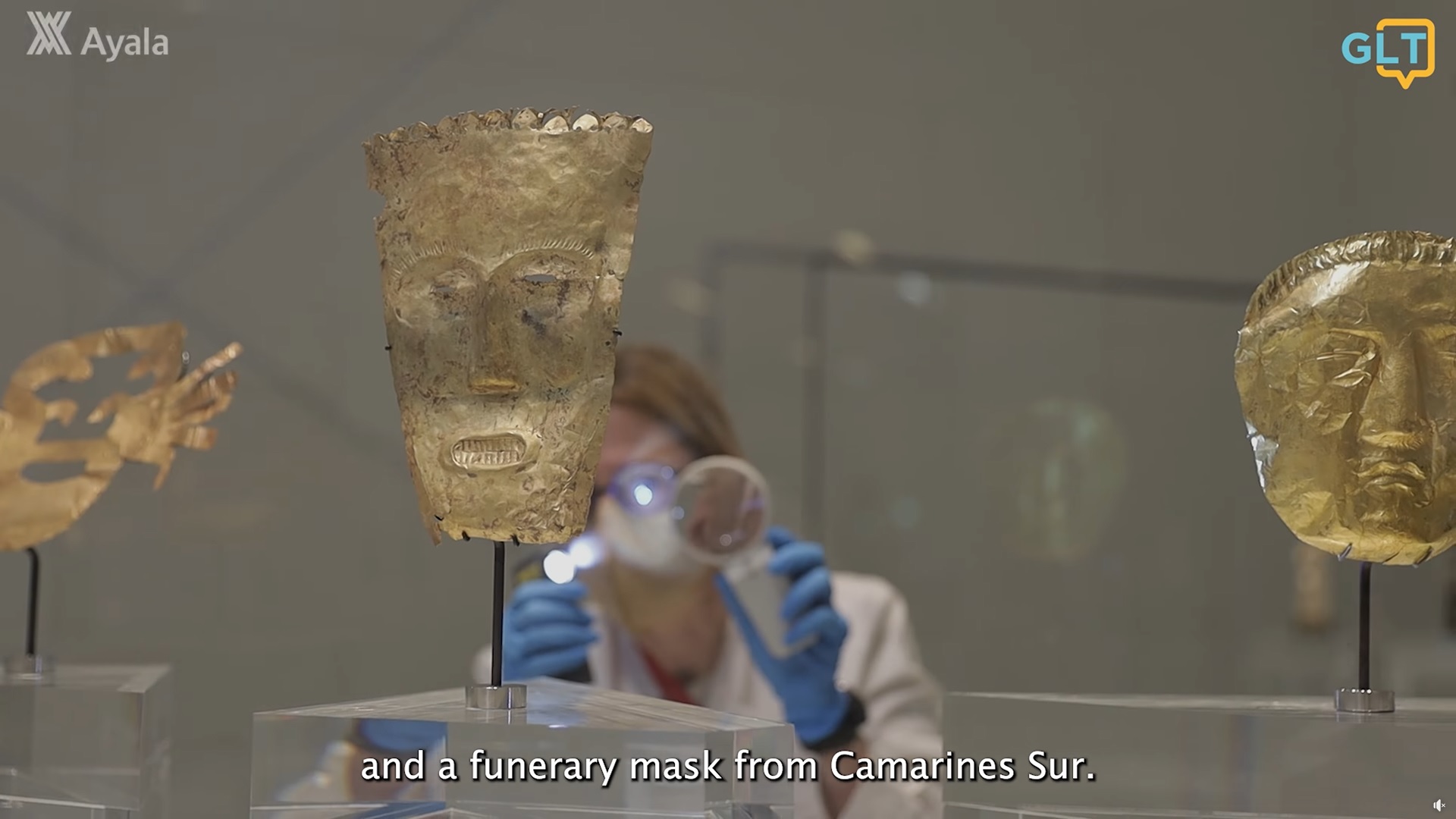A historical documentary about two ancient gold treasures from the Philippines, which are currently on display at the prestigious Louvre Abu Dhabi until June 2023, reveals a long-forgotten history and gold-rich heritage of Overseas Filipino Workers (OFWs).
The chronicle traces the origin and discovery of the two fascinating gold artifacts—a burial mask from Butuan and a gold cup from Nabua, Camarines Sur—that date back between 900-1200 AD. They were loaned by the Ayala Museum and served as the first archaeological items from a Southeast Asian museum to be displayed at the Louvre Abu Dhabi in celebration of its fifth anniversary.
Produced by New Perspective Media Group in cooperation with the Philippine Embassy in the UAE, it highlights the Ayala Museum’s permanent exhibition called “Gold of Ancestors: Pre-Colonial Gold from the Philippines”.
A peek into a heart of gold
HE Hjayceelyn M. Quintana, Philippine Ambassador to the UAE, underlines that the two Philippine gold treasures in the Louvre Abu Dhabi reconnect OFWs to their noble roots and offer international visitors at the Louvre Abu Dhabi a glimpse into the Filipinos’ deep-seated history.
“People in the UAE and around the world know that Filipinos are friendly, trustworthy, and generous, having a heart of gold. The gold artifacts from the Philippines provide another dimension to this description—a peek into the culture of this people with a heart of gold,” Quintana stresses.
There are approximately 1 million Filipinos who live and work in the UAE, making them the third largest expat community in the bustling cosmopolitan of 200 nationalities in the country.
Celebrating universal connection
The Philippine gold artifacts at the Louvre Abu Dhabi are currently showcased alongside other burial artifacts from the Levant and South America. These ancient pieces all depict the concept of the afterlife, which is commonplace among human civilizations.
Mariles Gustilo, Ayala Museum’s Senior Director for Arts & Culture, stresses that altogether the Louvre exhibition exemplifies shared aspects of human creativity and tradition.
“These artifacts were selected by the Louvre Abu Dhabi. I think it had to do with their own narrative, which is the universality of creativity and culture. When I saw it (the Philippine ancient burial mask) on video, it was beside a Peruvian mask and a Lebanese mask. And yet, they all share a common perspective. It made my hair stand because in a world of many centuries, we actually have more in common than we don’t and that is so powerful,” Gustilo highlights.
#AyalaForTheGreaterGood
The Ayala Museum was founded by Fernando Zobel, a prominent figure in Philippine modern art scene, in 1967. He belonged to the Zobel de Ayala family, who established the Ayala Corporation, which is the oldest conglomerate in the Philippines, and gave birth to the first bank in Southeast Asia and the first banknote and first mass transportation in the country.
Jaime Zobel Urquijo, AVP of International Business Development at ACEN Corp., underscores, “The family business goes back over 180 years, but similarly to the business side, we have a very strong art and love of culture within the family.” He adds, “Most people when they think of Philippine history, probably think back to the colonial era. These artifacts shed light on the incredibly rich pre-colonial history of the Philippines. It’s rich and diverse, but sometimes it doesn’t get the limelight that it truly deserves.”
The documentary aims to strengthen OFWs’ identity as a people with noble history that has survived the travails of time. It inspires the Filipino diaspora to continue taking up remarkable space wherever they are in the world.
For more information about #AyalaForTheGreaterGood, visit @AyalaCorporation Facebook page and @ayala_corporation Instagram account.




